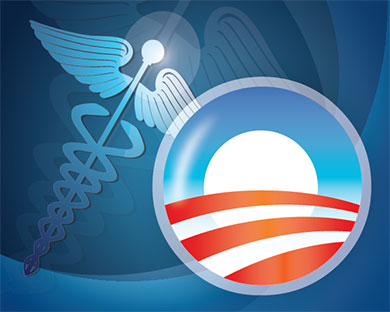Did the IRS Just End Obamacare?
The IRS has announced that it will no longer require taxpayers to fill out the Obamacare line on tax forms that asks whether taxpayers had health insurance throughout the year, and penalizes them if they did not. The line was added to enforce the ...
Feb. 17, 2017

The IRS has announced that it will no longer require taxpayers to fill out the Obamacare line 61 on tax forms that asks whether taxpayers had health insurance throughout the year, and penalizes them if they did not. The line was added to enforce the individual mandate.
Under the healthcare law, the IRS would reject tax returns if taxpayers didn’t have insurance, unless they were exempt. If the line was left empty on their tax return, it was labeled a “silent return” and rejected. The agency now says that it will process returns regardless of the health insurance line.
Congressional Republicans and many small business proponents have been pushing for years for either the repeal or replacement of the Affordable Care Act, aka Obamacare. Most notably, many who are against the healthcare program consider the individual mandate to be an affront, despite the U.S. Supreme Court upholding that provision two years ago.
While President Trump promised to repeal the law during his campaign, there has been little legislative action on the subject during is first few weeks in office. However, an executive order he signed in his first day might end up being the silent killer of the healthcare law.The order told agencies to lessen “the economic and regulatory burdens of Obamacare.
“The recent executive order directed federal agencies to exercise authority and discretion available to them to reduce potential burden,” the IRS said in a statement. While the agency only announced the new policy on Wednesday, Feb. 15, it says it started implementing it for all returns filed this year.
And the most recent action by the IRS will have a major impact on the ability of the healthcare law to continue, since there will be no enforcement of Americans to have insurance. Previously, those without insurance would face a penalty of up to $695. or 2.5 percent of household income.
In another Obamacare-related developments, the department of Health and Human Services have implemented new rules that would make it harder for taxpayers to buy health coverage outside of official enrollment periods, lets insurance companies restrict coverage sooner if customers are late on payments, and has tougher eligibility checks.
“These proposals are a good start toward improving the functioning of the marketplace, so that any longer-term reforms can begin on a better footing,” said Alyssa Fox, senior vice president for policy of the Blue Cross Blue Shield Association.
The actions will “raise deductibles, reduce access to physicians and put limitations on the ability for people to get coverage,”according to Andy Slavitt, the Obama administration official who oversaw the Centers for Medicare and Medicaid Services.
Although the IRS has stopped enforcing the tax form reporting requirement, the Affordable Care Act is still legislatively in effect and, according to a note from Drake Software, “taxpayers remain required to follow the law and pay what they may owe.”
The IRS statement echoed that advice:
“Legislative provisions of the ACA law are still in force until changed by the Congress, and taxpayers remain required to follow the law and pay what they may owe.” The agency says that although silent returns won’t be automatically rejected, they may eventually be questioned by the agency and the penalty assessed. Drake Software advises its users to remind their clients that those leaving line 61 blank “could receive communication from the IRS, experience delayed refunds, and face subsequent collection activity to recoup the individual shared responsibility payment.”
